Covid: International students seek compensation from UK government
- Published
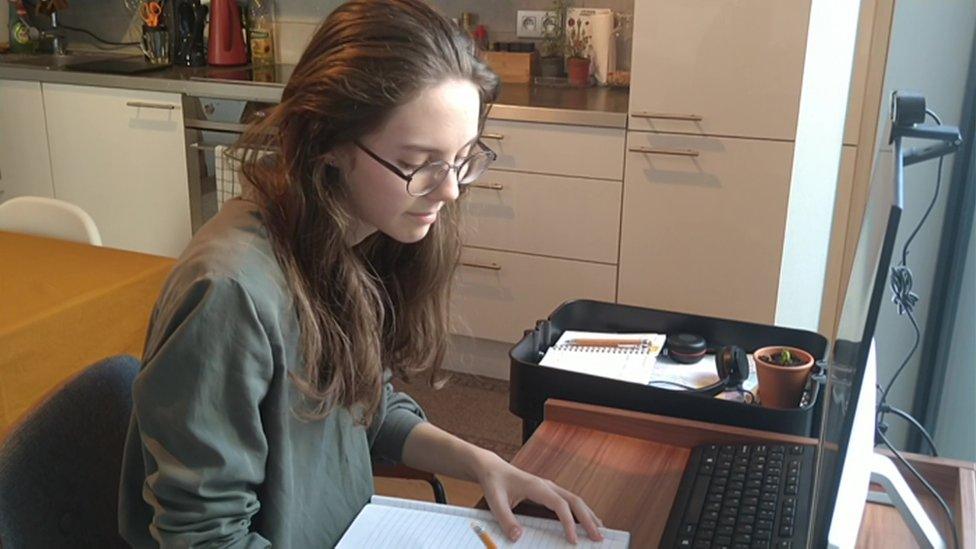
Freja Ellefsen has been unable to return from Belgium to university in Leeds since Christmas
International students affected by Covid-19 measures are campaigning for compensation from the UK government.
Foreign undergraduates - whose tuition fees are uncapped - told the BBC their university experience had been severely affected by travel bans.
They said online lectures did not replace live teaching, and did not feel like good value for the money paid.
The government said universities should maintain the quality and quantity of tuition.
Student groups across the country have blamed government guidelines for a "severe" impact on their university experience.
A petition on behalf of international students in the UK says virtual teaching "is failing" and rule-changes relating to international travel were grounds for compensation.
'Cultural experience'
"Many of us left before Christmas, thinking we'd be home in Leeds in January," international relations student Freja Ellefsen said.
She lives in Belgium and moved to Yorkshire to study at the University of Leeds. She went home at Christmas but international travel restrictions have stopped her from returning.
"Now we have all of our things there, we're still paying rent. Half of our online teaching was OK, but now we're really starting to feel the effect.
"International students aren't just there for the study experience, they're also there for the cultural experience and they're missing that too."
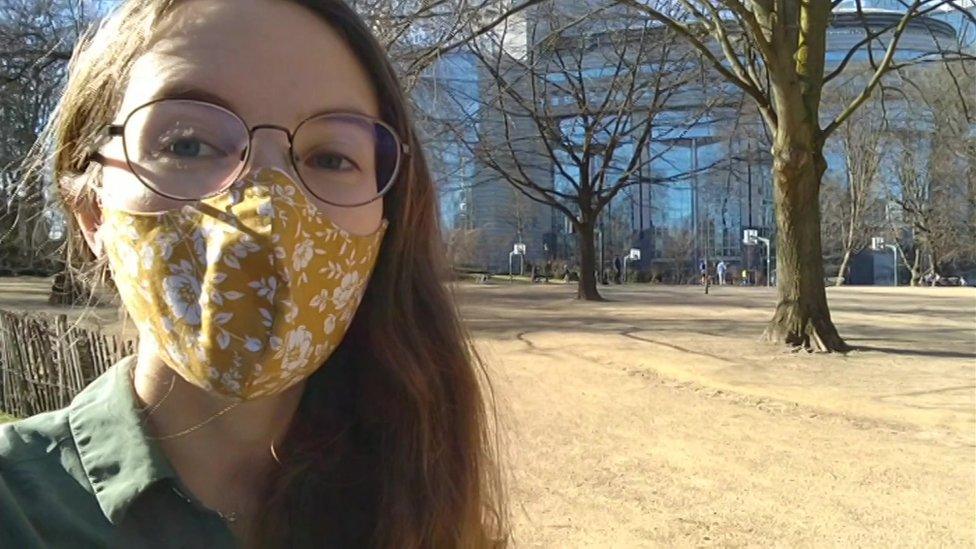
Freja Ellefsen has spent much of her year in Belgium, studying virtually at the University of Leeds
'Is it worth travelling for virtual lectures?'
International students usually pay more in tuition fees when compared with their English counterparts, whose undergraduate fees are capped at £9,250 a year.
Those from abroad can pay more than double this figure.
Muhammad Moeen Ud Din Bhatti, from Pakistan, pays £17,500 a year to study politics, philosophy and economics at the University of York.
"Is it worth it coming to a UK university and studying over here an online course which obviously they could study anywhere in the world from any other university?" he said.
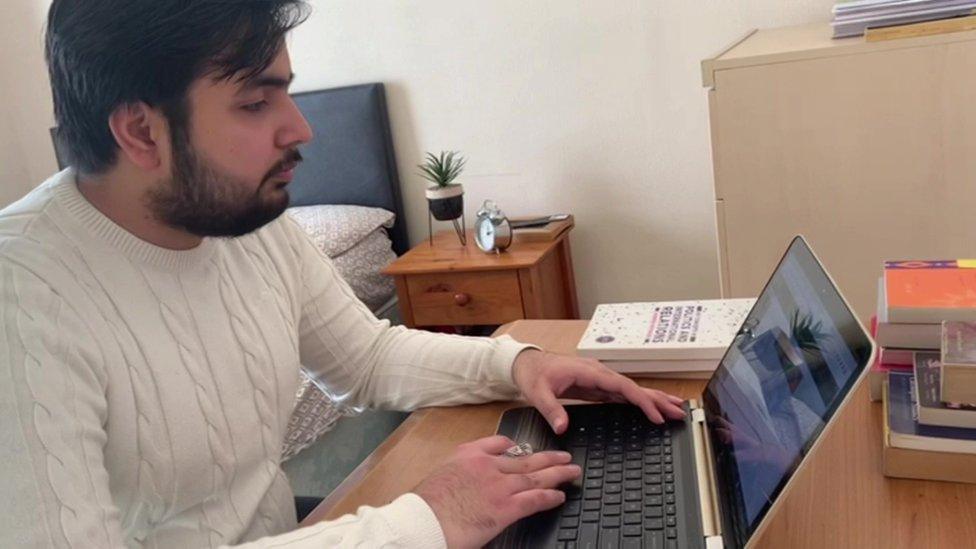
Muhammad Moeen Ud Din Bhatti pays £17,500 a year for his course which he says can be studied from "anywhere in the world"
'We don't pay so much to deserve so little'
Bernadette Hsiao's £19,000-a-year journalism course at the University of Sheffield is a mixture of practical work and written assignments.
She opted not to travel home to Taiwan when international travel restrictions were brought in, and chose to stay in her student accommodation.
The university boasts state-of-the-art broadcast studios, but Bernadette says coronavirus restrictions have stopped students being able to use them.
She said: "Mostly I'm staying in my room and I don't get the practical experience that my course needs to be.
"I really don't think we pay this much [to] deserve this little. I know a lot of universities work very hard to make sure online lessons go well, but it just still is not the standard."
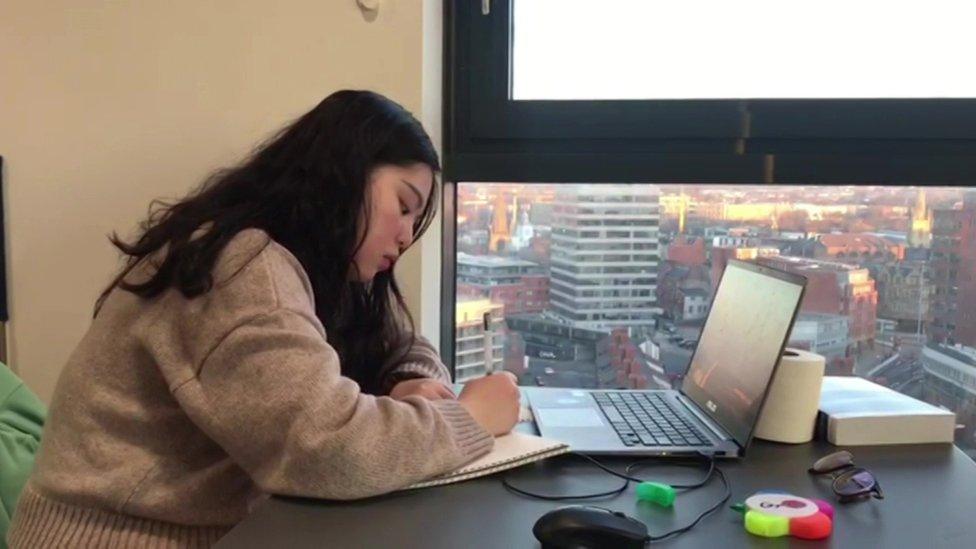
Bernadette Hsiao said she has not been able to use some equipment she needs on her course
Disrupted learning
Since the start of the pandemic, many courses have moved online with students taking part in lectures on video services like Zoom.
Students who moved to university towns and cities are also paying rent for accommodation they might not be using because they don't have to live near their education provider.
Some moved back home and study remotely, while others, like Bernadette, spend most of their time in their rooms because social activities are cancelled due to the lockdown.
Elsewhere, a university has been ordered to pay a student £5,000 in compensation for lost teaching time, according to a complaints watchdog.
The Office of the Independent Adjudicator said students had complained about disrupted learning, accommodation and missed practical elements of courses.
Return of face-to-face teaching
The government said the Office for Students was monitoring online teaching to ensure the quality of tuition remained high.
A Department for Education spokesperson said: "From the very start of this pandemic, our priority has been protecting the education and wellbeing of all of our students, including international students, so that they can continue with their studies and graduate as planned."
It added face-to-face teaching would return when it was safe to do so.

Follow BBC Yorkshire on Facebook, external, Twitter, external and Instagram, external. Send your story ideas to yorkslincs.news@bbc.co.uk, external.
- Published2 March 2021
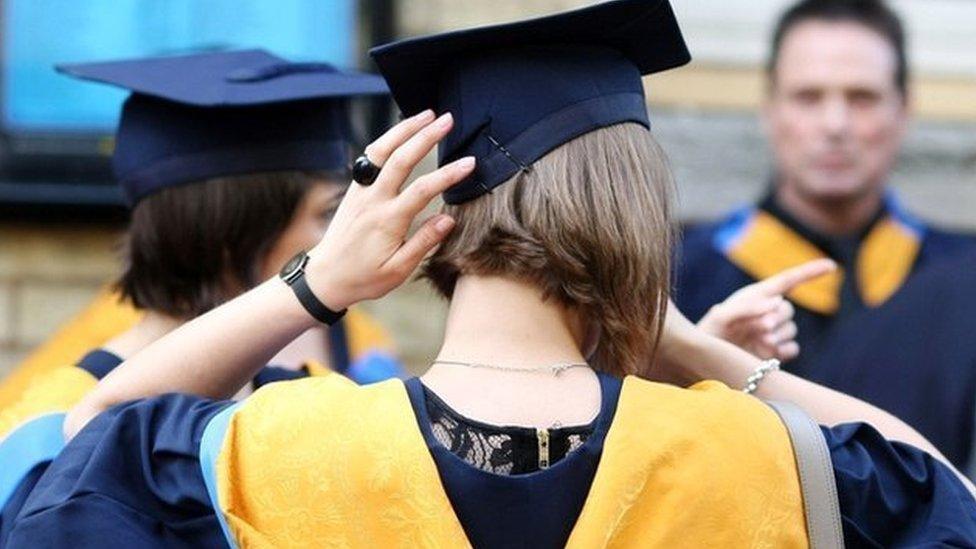
- Published17 February 2021
